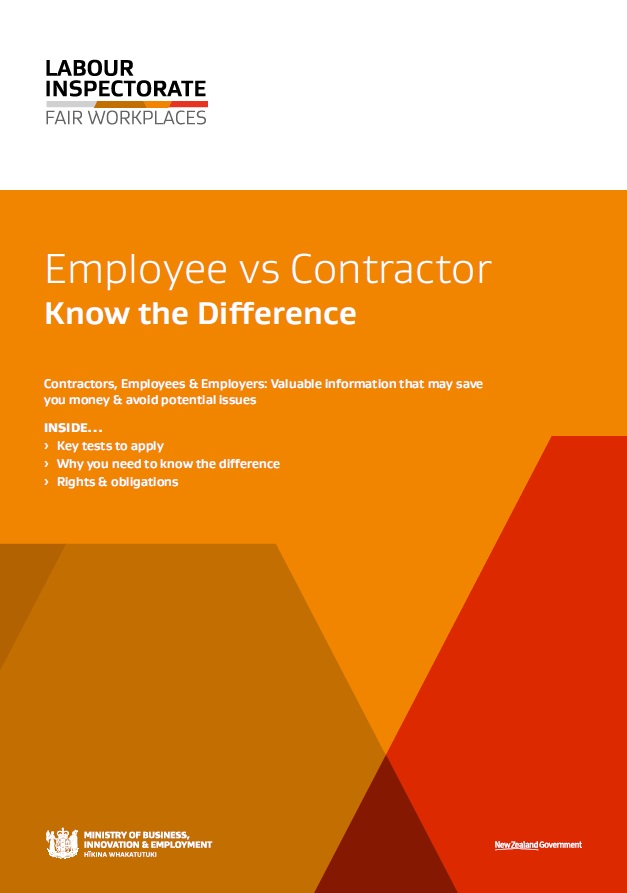Engaging a contractor to undertake an activity may be the right decision to best meet the business needs of the University. However, in most cases it will be more appropriate to hire an employee, particularly if it is a core activity of the University.
There are many differences between contractors and employees that affect the rights and obligations of the business and the worker. Getting it wrong can cost you and put the University at legal risk.
Have a look at the Contract for Services Procedure.
The Ministry of Business, Innovation & Employment (MBIE) have produced a useful guide "Employee vs Contractor: Know the Difference", and website containing the below advice.
Why do I need to know the difference between an employee and a contractor?
Here a just a few examples:
Employers: If the University hires someone as a contractor when they are actually an employee, the University may later be held liable for extra costs including: unpaid PAYE tax, unpaid minimum wages, holidays and leave entitlements. The University may also be at risk of receiving penalties from the IRD and/or Employment Relations Authority (that could harm reputation). Also the University may be declined approval to bring in workers from overseas.
Employees: If hired as a contractor incorrectly rather than as an employee, then they may miss out on their minimum employment rights and their KiwiSaver employer subsidy (NZ Resident), plus end up paying tax and ACC levies that they didn't have to.
What are the main rights and obligations related to employees vs contractors?
An employee is a person employed to do any work for hire or reward under a contract of services (commonly called an employment agreement). The hire or reward is almost always a wage or salary.
Employees must get:
- at least the minimum wage,
- holiday and leave entitlements, and
- an employment agreement.
Employees also have extra rights, like the right to take a personal grievance. Also, the employer must keep employee' records such as an employment agreement and wage-keeping details.
A contractor is an entity engaged by a principal (the other party) to perform services under a contract for services (commonly called an independent contractor agreement). Contractors may be self-employed, incorporated societies, sole traders, partnerships or a limited liability company. They earn income by invoicing the principal for their services. A contractor must pay their own tax and is responsible to pay ACC levies. Contractors are not covered by employment laws. They are not eligible for employment entitlements (like paid holidays) unless such rights are agreed as part of their contract.
How does a Contractor get paid?
Payment is made either by the FinanceOne system or the Payroll System. Have a look at this payment flowchart to work out which system makes the payment. Also refer to section 9 of the the
Contracts for Services Procedure.
Note that:
- If the contract spans more than one budget period, Chief Operating Officer (COO) approval is required as per the 'Financial Delegations Procedure', and/or
- Financial delegation limits are set out in the 'Schedule of Financial Delegations'
Contacts
HR Administrator
Divisional HR Manager
FSD
Useful documents and links
- Contract for Service Procedure
- Application Form
- Agreement with Independent Contractor
- Schedular Payments Account Details Form (University of Otago)
- New Creditor Application Form (domestic) (for FSD)
- New Creditor Application Form (overseas) (for FSD)
- IRD rate of tax deductions from schedular payments (Page 3 of the IR330C)
- Guide to Employee Types (Business.govt.nz)
- Financial Delegations Policy
- Financial Delegations Procedure
- Schedule of Financial Delegations